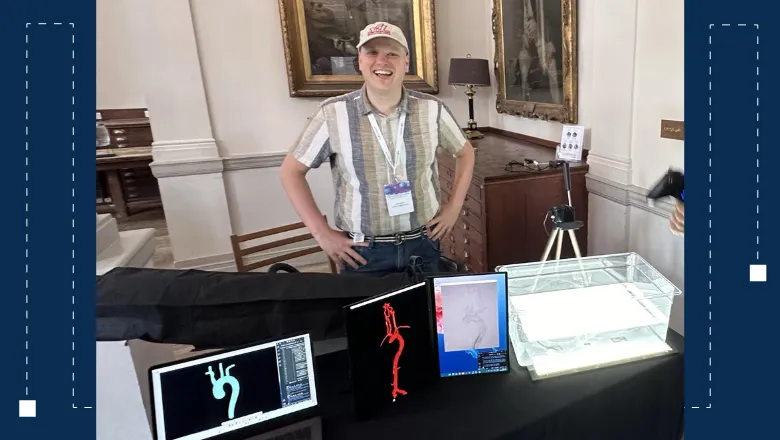The ultimate goal of this project is the deployment of a smart autonomous medical system to further democratise access to high-end medical treatment. Our developments serve as a pathway toward reinventing catheter steering by soft robotics to minimise the need for expertise and specialist centres.
Dr S.M.Hadi Sadati, Research Fellow, School of Biomedical Engineering & Imaging Sciences
10 July 2024
King's researchers awarded funding to develop remote surgical robotics
Researchers from King’s College London have received £75,000 in funding from the new MRC Impact Accelerator Fund to further investigate the use of artificial intelligence (AI) and robotics to treat stroke patients autonomously.

In a recent study, the research team explore how surgical robots guided autonomously by AI could be used to enhance surgery safety and reduce procedure times.
The recently funded project, which began in April 2024 and runs for 12 months, will continue this work to assess whether AI assistance can help doctors guide instruments through blood vessels toward the clot.
Surgical procedures known as mechanical thrombectomies (MT) have become an established treatment for patients suffering from the blocking of large blood vessels, with rapid intervention increasing the likelihood that a patient will be able to care for themselves independently after a stroke.
While rapid intervention is crucial to patient outcomes, there are limited facilities in the UK that are equipped to handle MT procedures.
This project aims to develop an affordable off the shelf robotic unit for surgery, that will allow an expert doctor from a specialist neuroscience centre to perform the procedure remotely.
If proven to be safe and effective, our thrombectomy systems could eventually be located in several geographically strategic sites and would almost certainly have huge health and economic impact for patients by preventing the devastating consequences of missing urgent treatment.
Dr Thomas Booth, Reader in Neuroimaging, School of Biomedical Engineering & Imaging Sciences

